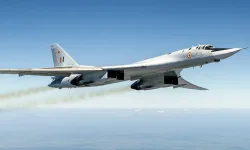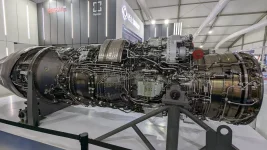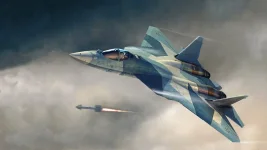- Views: 2K
- Replies: 14
Following the confirmed successful use of the BrahMos supersonic cruise missile by India in strikes against Pakistani airbases, international interest in the weapon system has increased significantly.
This has prompted Russia to actively promote its own P-800 Oniks-based coastal defence system, the Bastion-P, to a global market eager for proven supersonic missile technology.
Recent military engagements saw the Indian Air Force (IAF) utilise a small number of its BrahMos missiles to neutralise key Pakistani airbases, reportedly crippling operations in under 30 minutes.
The missile's ability to overcome and destroy sophisticated Chinese-made HQ-9 and HQ-16 air defence systems during these strikes has been a focal point of discussion in international defence circles.
This real-world demonstration of the missile's effectiveness has accelerated procurement discussions with several nations.
In response to this heightened demand, Russia’s state arms export agency, Rosoboronexport, is highlighting its K-300P Bastion-P mobile coastal defence system.
The system's core offensive capability comes from the P-800 Oniks, a supersonic anti-ship missile that is the original Russian platform upon which the BrahMos was jointly developed with India.
Moscow is strategically marketing the Bastion-P to nations that have shown interest in the BrahMos, leveraging the shared technological heritage of the two missiles.
The BrahMos is a product of a joint venture between India's DRDO and Russia's NPO Mashinostroyeniya. The P-800 Oniks and its associated Bastion-P system, however, are entirely Russian-produced.
This allows Russia to independently tap into the growing market for supersonic strike weapons, especially in regions where India might have strategic limitations on its arms exports.
Nations in Southeast Asia, particularly Vietnam and Indonesia, are reportedly advancing their plans to acquire the BrahMos system.
Vietnam, which already operates the Russian Bastion-P, has been in long-standing talks with India for BrahMos, and the missile's recent combat success is believed to have added urgency to these negotiations.
Similarly, Indonesia has been engaged in advanced discussions for the missile to bolster its maritime security.
The Philippines became the first export customer for BrahMos, receiving its initial deliveries in 2024.
Defence analysts note that while both the BrahMos and the Bastion-P share a common origin in the P-800 Oniks, they are not identical.
The Indian BrahMos has been evolved into a versatile, multi-platform weapon that can be launched from land, air, and sea, and is deeply integrated with India's domestic command-and-control infrastructure.
The Bastion-P is primarily configured as a land-based mobile system for coastal defence, firing the P-800 Oniks which has a range of up to 300-600 km depending on the variant and flight profile.
The demonstrated success of the BrahMos has created a significant surge in the global appetite for advanced supersonic weapons. This has opened a strategic window for both New Delhi and Moscow to expand their influence and secure a larger share of the multi-billion dollar missile export market.




